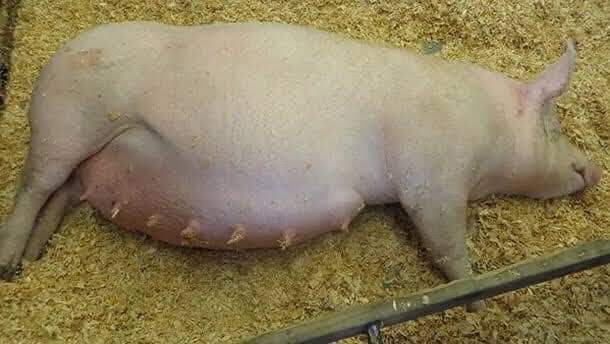Care and management of pregnant sow
One of the most important factors in a sustainable swine production programme is that of the managemental aspects relating to Sow. Sows should be looked after with particular care so that the piglets are delivered normally and nursed properly.
Successful conception is characterized by failure to return to estrus 3 weeks following mating.
The time period between breeding and farrowing is known as Pregnancy period.
The duration of pregnancy is 114 day (3 months, 3 weeks and 3 days).
The following factors needs special attention during pregnancy
1.Housing
2.Feeding.
3.Health.
Housing:
Pregnant sows should be housed separately in special pens with sufficient floor space. If space is available exercise is strongly recommended. Slippery floors may lead to falling causing accidental abortions.
Feeding:
Sows gain weight during pregnancy which consists of two-thirds body weight gain and fattening of the sow and for the embryos and embryonic fluid. Feeding is of particular importance and conversion of food into body weight is efficient and nutrient retention is very high. Nevertheless, it is not recommended that should gain excessive weight during pregnancy which other wise following parturition they will be heavy and clumsy and piglets will be easily crushed. Moreover high levels of feed intake are associated with proper embryonic development. The number of normal piglets born is increased if feeding of sows is restricted
Normal sow feeding regime can be maintained for the first 3 months of pregnancy. Following this, sows are placed in farrowing pens and fed ad libitum. Fetuses grow rapidly towards the end of pregnancy and nutrient requirements increase. Finally, it is necessary to promote appetite in sows as they have considerable nutrient requirements during lactation. Such and increase in appetite will not develop spontaneously and requires time.
Feed highly with bulky feeds from 4-5 days before and after furrowing by substituting with wheat bran, ground legumes, which may help prevent constipation and reduce problems with mastitis- metritis- agalactia.
Health:
Pregnancy may be halted before term and the fetuses ejected: this is abortion. It must be understood that sows may eat both fetuses and placental membranes and that some abortions may not be recorded by the farmer.
Important diseases including swine fever and salmonellosis, may cause abortion although these are not the only possible causes. Mouldy feed may be responsible. Deficiencies in vitamin A and calcium may cause repeated abortions. Vaccination against swine fever during the first month of pregnancy may provoke viral infection of the placenta resulting in abortion.
If there are a number of consecutive abortions notifying a Veterinary Surgeon is recommended to identify the cause and suggest appropriate remedies.
Dr Parvinder kaur Lubana, RDDL, Jalandhar


